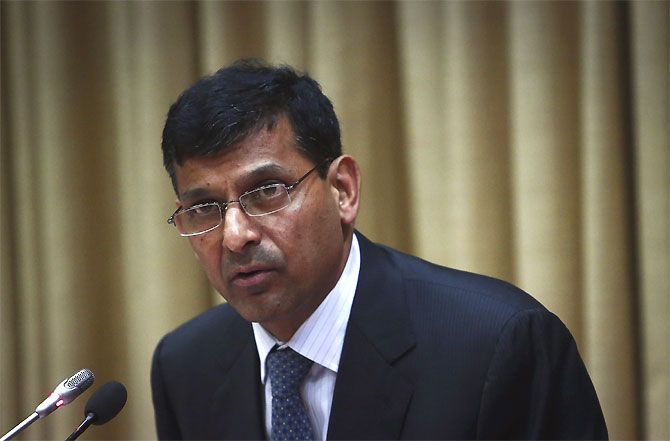 Reserve Bank Governor Raghuram Rajan on Monday warned against compromising India's interest for the sake of attracting foreign investment and said the priority should be framing transparent policies as well as resolving contractual tax disputes quickly.
Reserve Bank Governor Raghuram Rajan on Monday warned against compromising India's interest for the sake of attracting foreign investment and said the priority should be framing transparent policies as well as resolving contractual tax disputes quickly.
"The most stable form of financing, foreign direct investment, has the additional benefit of bringing in technology and methods. But India should not be railroaded into compromising its interests to attract FDI," he said in a commentary posted on the website of Project Syndicate.
He, however, did not elaborate on what he thought could compromise India's interest.
Making a case for transparency in policies and resolution of "contractual" disputes, especially over taxation, Rajan said efforts to ensure this have already begun.
India will run a current account deficit for the foreseeable future, which means that it will need net foreign financing, he said.
Sustained growth in India requires lifting people out of poverty, fuelling infrastructure investment and a rethink on economic-policy approach, he said.
"If India is to succeed, it will have to deepen regional and domestic demand, strengthen its macroeconomic institutions, and join in the fight for an open global system.
Diminished expectations abroad should not lead India to lower its ambitions," Rajan said.
The new government under Prime Minister Narendra Modi in its eight months in office has relaxed FDI norms in insurance railways, construction, defence and medical devices sector.
Foreign inflows in the country rose by 22 per cent to $18.88 billion during the eight months of the current fiscal. The amount was $15.45 billion in the April-November period of 2013-14.
"India needs an open, competitive, vibrant system of international trade and finance," he said.
Stating that responsibility for keeping global economy open may fall on emerging economies like India, Rajan said New Delhi should press for quota and management reforms in multilateral institutions, like IMF.
"India can no longer simply object to proposal by developed countries; it must put its own proposals on the table," he said.










